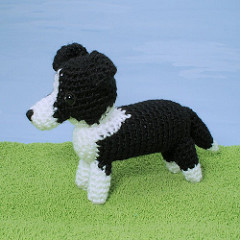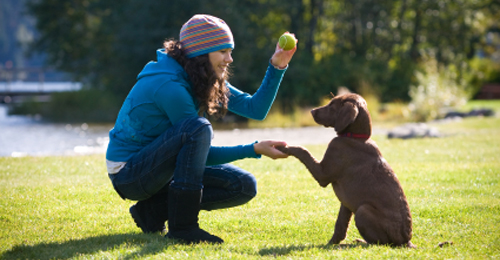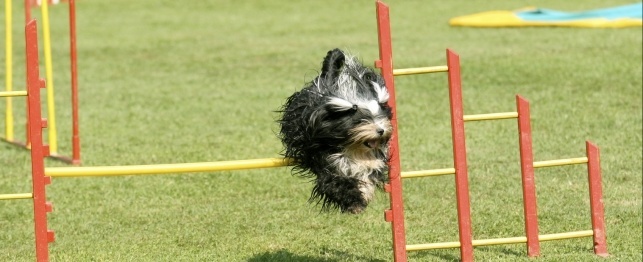You now own a new puppy or dog, and have probably bought everything it needs -- such as food, toys, bowls, leashes and a collar -- so your dog will feel right at home and cared for. But, have you also checked in to much needed dog training courses? Dogs not only need such courses to learn to behave but also to feel safe and be secure.
The answer to this question is probably "no", as many people do not think about obedience classes as a necessity for bringing home a new dog. Unfortunately, this is the mistake many make which can lead to an unhappy relationship between your new pooch and your family, especially if your four legged friend is quite unmanageable behavior wise. That is why dog training courses are fundamental to the health and overall happiness of you, your family and the newest member of your family -- your new dog.
There are several different types of dog training courses that you can choose from in order to help you with the discipline of your new dog. Each one has many benefits and they each work in slightly different ways as far as the reinforcement of the trained behavior is concerned. The best way for you to determine which type of course is best for you is by doing a bit of research in to each one in order to understand any pros or cons each may have for you and your dog.
For example, one of the most popular types of dog training courses that people choose is the positive reinforcement/reward method. This type of training allows the dog to receive a combination of rewards -- such as a suitable doggie treat (you can get some very healthy ones at your pet store) plus your always-ready enthusiastic praise when they follow the commands you teach them, such as sit, stay, lay down and heel and many more.
Other types of dog training courses include the highly controversial choke collar training in which the owner would snap the leash and apply pressure to the dog's throat when an undesirable behavior is performed. This could severely injure a dog's neck and trachea so should only be used by professional trainers in extreme circumstances.
There is also head collar training, which is more humane than the choke collar and can be used to steer the dog, gently, towards the desired behavior.
Then there is the promising click training method -- a newer method that has shown great results when learned properly; basically, a clicker is used in conjunction with giving a treat when you give a command, as the dog learns the command, the treat is gradually eliminated leaving only the clicker to reinforce his behavior.

 Teaching Your Dog Polite Leash Skills - Canine Manners 101 Dog Training Series
Teaching Your Dog Polite Leash Skills
This article i
Teaching Your Dog Polite Leash Skills - Canine Manners 101 Dog Training Series
Teaching Your Dog Polite Leash Skills
This article i
 Dog Dudes: Surfing Dogs
Dog Dudes: Surfing Dogs
Dog Dudes: Surfing Dogs
Dog Dudes: Surfing Dogs
 Train Your Border Collie Dog With These Helpful Hints
The day your new puppy comes home with you will be filled
Train Your Border Collie Dog With These Helpful Hints
The day your new puppy comes home with you will be filled
 Teddy Bear Dog
Due for this, the actual who invests in professional canine
Teddy Bear Dog
Due for this, the actual who invests in professional canine
 Agility: an Exciting Dog Sport
Agility: an Exciting Dog Sport
Agility: an Exciting Dog Sport
Agility: an Exciting Dog Sport